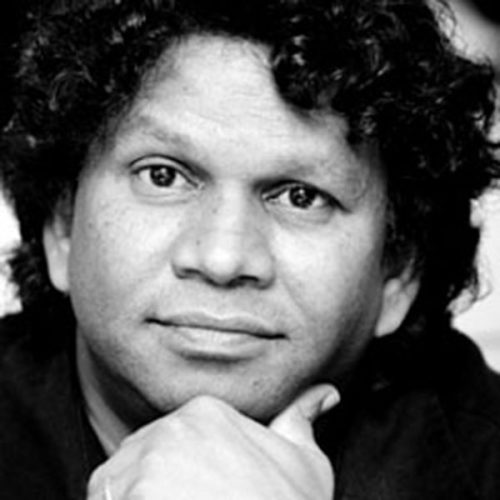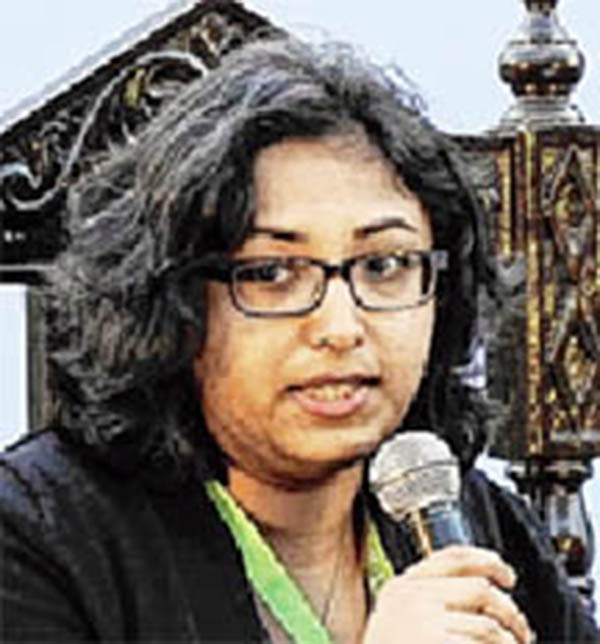 Today is Arrival Day. To mark the anniversary of the landing of two noteworthy ships, The Hesperus and The Whitby on the shores of British Guiana on May 5, 186 years ago, here are short excerpts of prose and poetry documenting that immigration experience and its aftermath in various creative ways. Those galleons brought immigrants from India under what was known as the John Gladstone experiment to ensure the supply of cheap labour on sugar plantations post slavery. The resulting upheavals in social and human life provoked these responses from writers.
Today is Arrival Day. To mark the anniversary of the landing of two noteworthy ships, The Hesperus and The Whitby on the shores of British Guiana on May 5, 186 years ago, here are short excerpts of prose and poetry documenting that immigration experience and its aftermath in various creative ways. Those galleons brought immigrants from India under what was known as the John Gladstone experiment to ensure the supply of cheap labour on sugar plantations post slavery. The resulting upheavals in social and human life provoked these responses from writers.
“Tales of the Sea” by Gaiutra Bahadur was taken from the outstanding document “We Mark Your Memory: Writing from the Descendants of Indenture”, edited by David Dabydeen, Maria del Pilar Kaladeen and Tina K Ramnarine and published by the University of London in 2018. It is an imaginative way of confronting the traumatic experience of crossing the Kala Paani and several implications of that in the lives of descendants in the present and recent times. A particular concern is kinship and the need for it, and Bahadur draws on the experience of her own relatives and ancestors.

She has mastered the craft of creative nonfiction and is famously known for the book Coolie Woman: The Odyssey of Indenture, for which she was shortlisted for the Orwell Prize. Her several publications include the short story “The Stained Veil”. Described as a Guyanese-American writer, Bahadur was a journalist and is now a researcher and academic who has won many fellowships and awards.
David Dabydeen has been for many decades among the leading writers and academics in the UK, having built an illustrious career at the University of Warwick, particularly in the Yesu Persaud Centre for Caribbean Studies. He served as Guyana’s ambassador to China and to UNESCO, and is now Honorary Fellow at Selwyn College, Cambridge University and Director of the Ameena Gafoor Institute. He is a highly decorated novelist and poet with many awards and prizes.
Reproduced here is a version of his poem “For Rohan Kanhai” which first appeared in the collection Coolie Odyssey. This version of the poem was used in the University of Guyana Citation when Rohan Kanhai was conferred with an Honorary Doctorate in 2023. The poem’s strong postcolonial leaning pinpoints the significant meaning of the batsman’s accomplishments in cricket, which go well beyond the boundary and is a social, cultural and political factor in the liberation of his people in the Corentyne in Guyana and in the West Indies. The name “Babulall” given to him by the folk is a confusion of his real middle name, Bholalall, but an appellation of identity with his roots and with the village and estate people from whom he came and who he represents in the world.

This heritage and contemporary cultural spinoff of indenture is also reflected in the study of another post-indentureship figure, Alice Bhagwandai Singh, by Baytoram Ramharack. Like Kanhai, Ramharack is from Berbice and has accumulated a considerable body of research and publications, including a study of Guyanese Balram Singh Rai and Jung Bahadur Singh.
The excerpt here is from the introductory sections of Ramharack’s latest book A Powerful Indian Voice Alice Bhagwandai Singh: Reflections on her Work in Guyana. It is presented just to give a small indication of the presence of the work in Guyanese literature as another study of the post-indenture period in British Guiana. Alice Singh was known for her work in the British Guiana Dramatic Society, one of the cultural clubs arising from the rise of Indian cultural consciousness in Guyana from the influence of Joseph Ruhomon up to the 1940s.
Cultural directions were further shaped by the work of Alice’s daughter, poet, creative writer, artistic mentor Rajkumari Singh, and her grandson, dancer Gora Singh. Rajkumari was a leading light in not only Indian, but national cultural output in the 1960s and 1970s. Much later, very interestingly, another of her direct descendants Sharda Shakti Singh of Richmond Hill, New York emerged as one of the most promising Guyanese playwrights in the first decade of the 21st century.
Ramharack’s documentary of Alice Singh was awarded Second Prize in the Guyana Prize for Non-Fiction 2023. It receives fitting notice as a contribution to Guyanese Indian literature marking the anniversary of Arrival Day.
From ‘Tales of the Sea’
“This is how I have retold the tale: The captain’s wheel became Shiva’s fiery circle, turning and turning in its cosmic spiral. And in the gyrating of the gales, and the churning of the waves, as one steered and the other danced, we became new.
“Uprooted, most had to recreate family during passages from India that significantly obliterated Hindu-Muslim as well as caste barriers. People who had left behind uncles, sisters, husbands and mothers substituted their fellow travellers for kin. For the indentured, return was a promise made in writing, part of their contract; but only a quarter ever journeyed back to India. Many who did found themselves rejected by their families and neighbours in their native villages. They had lost the moorings of caste. By Hindu orthodoxy, the very act of crossing the seas had turned them into polluted and polluting beings. Countless numbers languished in riverside slums in Calcutta while clamouring for boats to take them away from India yet again. For the overwhelming majority of ‘coolies’, there would be no return.
“…In our beginning, there was a boat. Having emerged from its belly, as survivors, indentured Indians could no longer be who they had been. Like the slaves before them, they were an entirely new people, forged by suffering, created through destruction.
“Those who made the three-month crossing together in the bellies of boats called each other jahaji bhai, which in Hindi means ‘boat brother’, or jahaji behen, which means ‘boat sister’. Half a century after my great-grandmother gave birth on The Clyde, she still held court in her yard, smoking a tobacco pipe and gossiping with women who had travelled on that same ship with her. For decades her jahaji behen would come from many miles away to visit her in her village in Guiana, and she returned the kindness.
“The Middle Passage created new kinship ties for the enslaved, as well. Scholars of eighteenth century Atlantic slavery have written about the bond that developed between slaves who braved the crossings on the same ship, a bond equal to blood ties because in many cases it had to replace blood ties. This, after all, was a group of people who had been wrenched from their families and their clans. ‘Shipmate’ became its own kinship category once slaves were in their new worlds, and it survived from one generation to the next. In Haiti, the word used for someone who crossed on the same ship was batiment; in Trinidad, it was malongue. And in Surinam, it was mati. In the case of both the indentured and the enslaved, there was a particular intimate word to call out someone who had made the journey on the same ship with you.
“It’s possible to make the concepts of ship sister and shipmate more symbolic and malleable, so that every descendant of indenture is a jahaji and every descendant of slavery a shipmate. An even more radical step in redefinition might also be taken. The courageous and the imaginative have ventured it – for one, the Trinidadian calypsonian Brother Marvin, who identifies as black but has Indian ancestors. In his 1990s hit ‘Jahaji Bhai’, he sang of his bahut aja, his great-grandfather who had come from Calcutta to plant sugar cane and thereby had made Indo-Caribbeans the calypsonian’s jahaji bhai. Brother Marvin reimagined a brotherhood of the boat that would ally Indian and African as kin, forged by parallel historical traumas. And just so, I could have told the Syrian boy in the Aegean that waterborne pasts still sending out ripples, giving us our figurative language, connect me to Lauren and Lauren to me. We are joined. We are ship sisters in our collective vocabularies.”
Gaiutra Bahadur, “Tales of the Sea”
For Rohan “Babulall” Kanhai
Kanhai
Cutlass whack six,
Leather-ball red
Like Whiteman restless eye
One ton cane runs
Cropped, all day in hot sun the man cut
And drop pon he back
To hook two and lash four:
Hear the guy-folk crying out for more!
England glad bad when clouds
Puff and scowl and blue
Like end-of-over bowlerman
And day done in rainburst:
God is White Overseer for true
Is round night radio we huddle to catch news
Of Kanhai batting lonely in some far country
Call Warwick-Shire, and every ball blast
Is cuff he cuffing back for we,
Driving sorrow to the boundary,
Every block stroke is paling in a fence
He putting down to guard we,
And when century come up, is like dawn
David Dabydeen
I join you now, oh baabula hamaar
revered, visible along creek water
to march in the heat of our own ship
to chart our own course in this bloody sea of revolution.
Oh my respected father.
Janet Naidu, 2005
Quoted by Baytoram Ramharack, 2023
Alice Bhagwandai Singh
“Few Indian women had carved out a name for themselves as public figures, not because their stories were insignificant, but because they remained buried in history. For most of us, our mothers were the champions, protectors and saviours in our lives. Alice Singh was a woman who had made significant cultural and social contributions towards the upliftment of the Guyanese people. Her accomplishments were not attributable to her husband, a well known Indian immigrant ship doctor, a British Guiana Legislative Council member, and a prominent Hindu leader in Guyana. Indeed, Alice Singh was a pioneer in her own right. By all accounts she was a remarkable Guyanese. She was a feminist, a cultural activist, an agent of change, and a writer – a combination of admirable qualities that were a rarity for an Indian woman, particularly one who lived in the immediate post-indenture period.
“I was presented with a copy of Alice’s handwritten ‘diary’ by her grandson, Karna Singh. . . . Alice’s early life in British Guiana straddled both the indenture and post-indenture worlds . . . Alice’s narrative was actually an incomplete autobiography. It was undoubtedly the first one I had come across that was written by an Indian woman without formal training in approaching such an undertaking. How could a person, who had invested tremendous time and effort into numerous social and cultural organisations, remain relatively unknown to a younger generation?”
From A Powerful Indian Voice Alice Bhagwandai Singh: Reflections on Her Work in Guyana (2023) by Baytoram Ramharack






